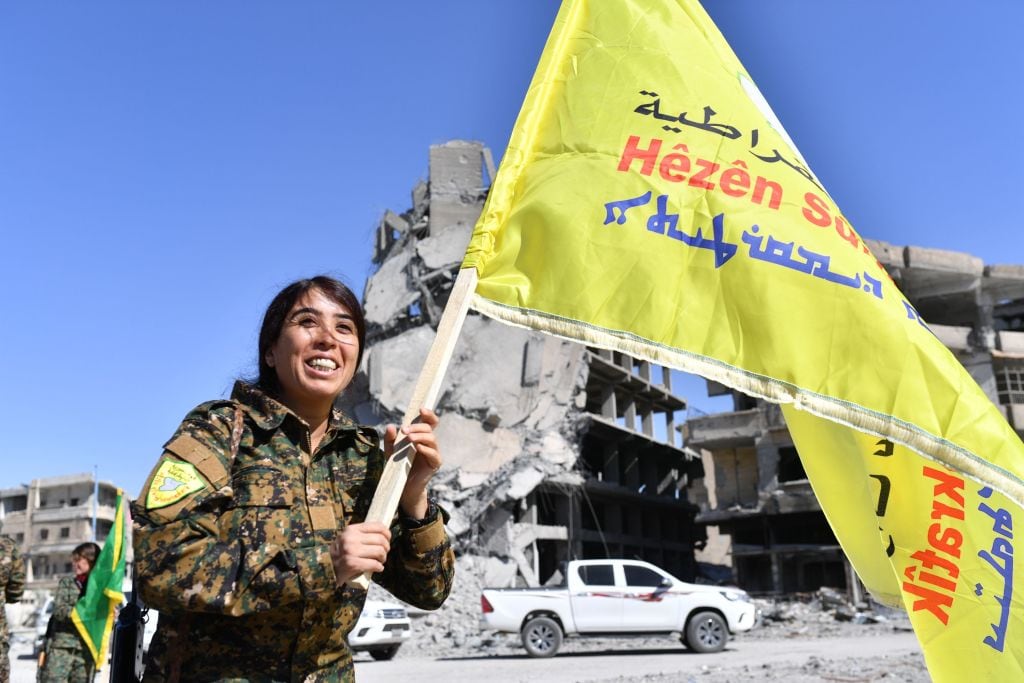WASHINGTON – U.S. Secretary of Defense Jim Mattis has yet to see a direct link between Russia and an attack against U.S. backed forces in Syria, but is not ruling anything out following the confirmed deaths of five Russian contractors during the incident.
“I still cannot give you any more information on why they would do this. They took direction from someone, with some local direction. Was it from external sources? Don’t ask me, I don’t know,” Mattis told reporters Feb. 17 while returning from Europe.
“But I doubt that 250-300 people all just decided on their individual own selves to suddenly cross the river into enemy territory and start shelling the location and maneuvering tanks against it. So whatever happened, we’ll try to figure it out. We’ll work with, obviously, anyone who can answer that question.”
During his week in Europe, Mattis talked openly about being “perplexed” by the attack, which seemed to fly in the face of both self-preservation, in attacking a U.S. backed base capable of calling in massive amounts of airpower for support, and established boundaries.
Days earlier on the Trip, Mattis he was not willing to say that the attack is a sign that Russia is losing some direct control over the Syrian military, which could potentially set up more clashes with American forces.
“I’m not sure if it’s the same influence and this is a group that set off on its own agenda. I’m not willing to say if the Russians have lost influence or gained influence,” he said then.
On Feb. 7, forces supporting Syrian president Bashar al-Assad crossed over the demarcation line in Khusham and targeted a base controlled by Syrian Democratic Forces, accompanied by U.S. advisers, in the province of Deir el-Zour.
The pro-regime forces began the attack with 122mm artillery pieces, before maneuvering T-55 and T-72 battle tanks against an SDF headquarters, according to the Pentagon. An approximately battalion-sized dismounted formation followed the tanks, which began indirect fire towards SDF positions.
As the forces approached the SDF base, the American officials reached out to their Russian counterparts via a deconfliction line to make sure there were no Russian military in the convoy. The Russians reported back that there were none, something Mattis underlined as a confusing data point in this whole situation, citing the “apparent unawareness of the Russian officers we coordinate with on the deconfliction communication line” that Russian military contractors were involved in the group.
After the call to the deconfliction line, the U.S. launched a wave of airstrikes that chased off the group, leaving at least 100 estimated casualties.
After multiple media reports of Russian dead, including some claiming as many as 200 Russian contractors killed, Moscow finally confirmed Feb. 15 that five Russian nationals were killed by the U.S. strikes.
Aaron Mehta was deputy editor and senior Pentagon correspondent for Defense News, covering policy, strategy and acquisition at the highest levels of the Defense Department and its international partners.









